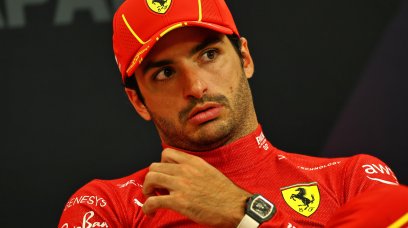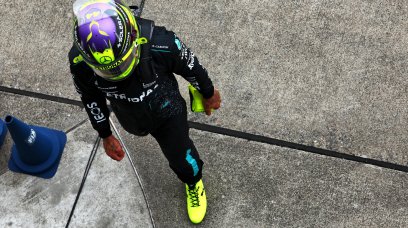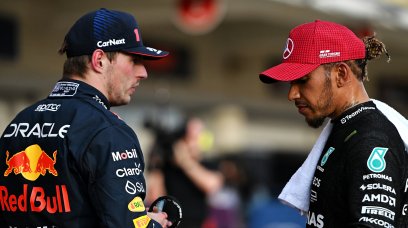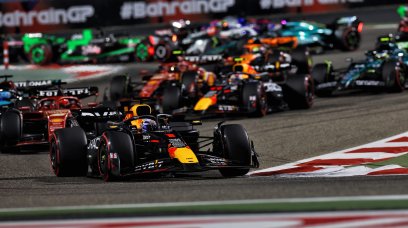RacingNews365 journalist Dieter Rencken believes that Lewis Hamilton should have been told to stop abusing track limits earlier in the Bahrain Grand Prix. Hamilton, who won the race, had consistently run wide at Turn 4 during the first half of the race, finding a little amount of laptime as a result. This wasn't strictly against the rules, although track limits are generally enforced under the Sporting Regulations. Midway through the race, Hamilton was told to stop running wide by Race Control's Michael Masi, and Rencken believes that, had he been told so earlier, the post-race controversy after Max Verstappen's illegal overtake wouldn't have happened. "That was very confusing," Rencken explained on the RacingNews365 podcast. " That said, I think we should see against the background that Lewis , although he had breached the the physical track limits, had not actually gained a positional advantage, he may have gained a performance advantage, but not a positional advantage. "Whereas, of course, Max did. Without breaching that track limit, Max could not have completed the pass on Lewis or I doubt whether he could have. And accordingly, I do believe that he had to give it back. "But I think they should, in fact, have come down on Lewis earlier in the race and said 'Hey, you're breaching track limits, this isn't on, if you don't stay inside, we will give you a warning and give you a black flag', or whatever the case is. And I think this is really where the the confusion arose." With the Sporting Regulations defining track limits under a somewhat vague 'lasting advantage' definition, Rencken was asked whether the FIA need to more clearly define what constitutes a lasting advantage, given that time gain in itself is an advantage over a race distance. "Time is, of course, an advantage," said Rencken. "But, if you don't get past somebody, it's not. I think this is where that sort of grey area is. Had Lewis been able to catch up, consistently non stop, take half a second per lap, etc., until eventually he was close enough to Max to be able to overtake him, we could say it's a lasting advantage. "However, in this particular case, it didn't really apply. And let's not forget, we had the the order changing, because people were on different strategies. So Lewis was in first etc., so from that perspective, I think the situation was such that the lasting advantage is a lot more difficult to define." The full new episode of the new RacingNews365 is available now! You can listen or download the episode below...
Most read





















